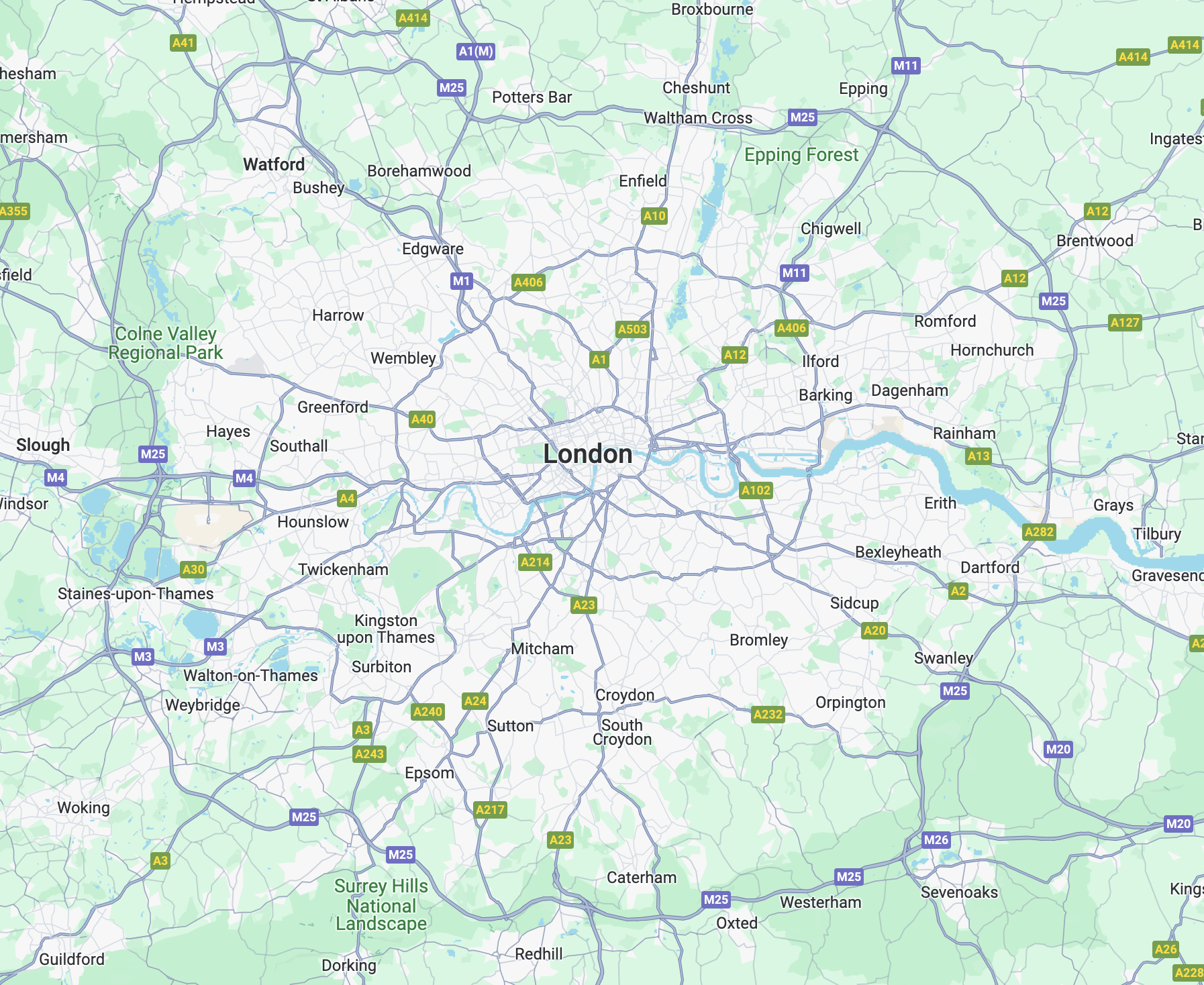What are congestion charges?
If you live or travel through London, you will be aware of the congestion charges that have been in force since 2003. The TfL (Transport for London) introduced the congestion charge to help reduce the number of vehicles travelling into the central capital. It helps to lessen damaging economic congestion, push more people to the public transport systems, help people travel more sustainably, and reduce air pollution.
So far, the congestion charge has reduced traffic entering the zones by over 18% during the weekday charging periods, boosted bus and public transport use by over 30%, and enabled more people to walk or cycle for many of their shorter journeys. The congestion charge does seem to work well, and if you look at the last few years, there were 3 million fewer vehicles driving into these zones, proving that the scheme is definitely helping with all aspects of congestion and air pollution.

Where are the Congestion Charge Zones and when do they apply?
The congestion charges will apply in the areas listed below, and only Christmas Day and New Year’s Day do not apply. The charge is in force from 7 am until 6 pm on weekdays and 12 pm to 6 pm on weekends and bank Holidays.
Barbican
Bloomsbury
Borough
Charing Cross
City of London
Clerkenwell
Covent Garden
Euston
Finsbury
Holborn
Lambeth
Marylebone
Mayfair
Newington
Soho
Southwark
St. Pancras
Waterloo
Westminster
If you are planning a trip, then you can check the TfL’s Congestion Charge zone website – to see if you need to pay to enter any zones.
How do you know if you are entering a Congestion Charge zone?
There is plenty of signage to show you will be entering a zone, you are in a congestion charge zone, and you are leaving a zone, so there is no confusion. Charges will apply. The congestion charge is monitored by the ANPR system (Automatic number plate recognition). This system checks your vehicle’s registration to find out if you’ve paid to enter and sends payment charges directly to the drivers.
Who has to pay the Congestion Charge?
Unless you drive a vehicle with less than 76g/km of CO2 emissions, it is pretty much guaranteed that charges of £15 per day will apply.
Who is exempt from the Congestion Charge?
The vehicles listed below are exempt from the Congestion Charge, but it is still wise to check yourself to make sure.
- Blue Badge holders
- Vehicles that have a disabled taxation class
- Battery electric or hydrogen fuel cell vehicles
- Vehicles with nine or more seats
- Two-wheeled motorbikes or mopeds
- Motor tricycle
- Taxis licensed with London Taxi and Private Hire
- Emergency services vehicles
- NHS vehicles that are exempt from vehicle tax
- Breakdown and recovery vehicles
- Official HM Coastguard or Port Authorities vehicles
- Official armed forces vehicles
- Vehicles used by the London boroughs
- Royal Parks Agency vehicles
Are all Electric cars exempt from the Congestion Charge?
Battery-powered electric and hydrogen fuel cell vehicles fall under the ‘Cleaner vehicle discount’ category, which means they are exempt from paying the daily £15 fee to enter the zone. However, this will change in December 2025, when the ‘Cleaner Vehicle discount’ scheme will be discontinued. Under this scheme, EV drivers will have to pay the daily charge unless they are exempt under any of the provisions above.

When and how do I have to pay the Congestion Charge?
The charge is once per day, no matter how many times you travel in and out of the zones on the same day. You can pay online on the day or in advance, and you have 3 days to pay; if outside of the 3 days, the charge will rise to £17.50. (Correct at July 2024)
If your travel is likely regular, setting up an auto-pay account with https://tfl.gov.uk/modes/driving/auto-pay?intcmp=2154#autopay is easy.
Simply visit the website, fill out the necessary information, and link your payment method. Once set up, the system will automatically deduct the congestion charge from your account each day you travel into the zones.
If you do not pay the charge on time, you will be fined £ 180 PCN, which can be reduced to £90 if paid within 14 days.
Who is entitled to Congestion Charge discounts?
There is a residence discount with a £10 annual registration fee, and if you meet the criteria below, you can receive up to a 90% discount.
- At least 17-years-old
- Main home address is within the Congestion Charging zone
- Name on official documents, including electoral register
- Vehicle registered with the DVLA in your name and the address provided
- Evidence of a current resident’s parking permit
- Proof of a current utility bill
- Evidence of your V5C vehicle registration certificate
One thing for sure is that congestion charges are not going away very soon and will likely be rolled out in other large city centres. Until the Electric vehicle revolution, which will happen by 2035, really starts to make a difference, you can expect to still be paying daily charges to enter central London.

